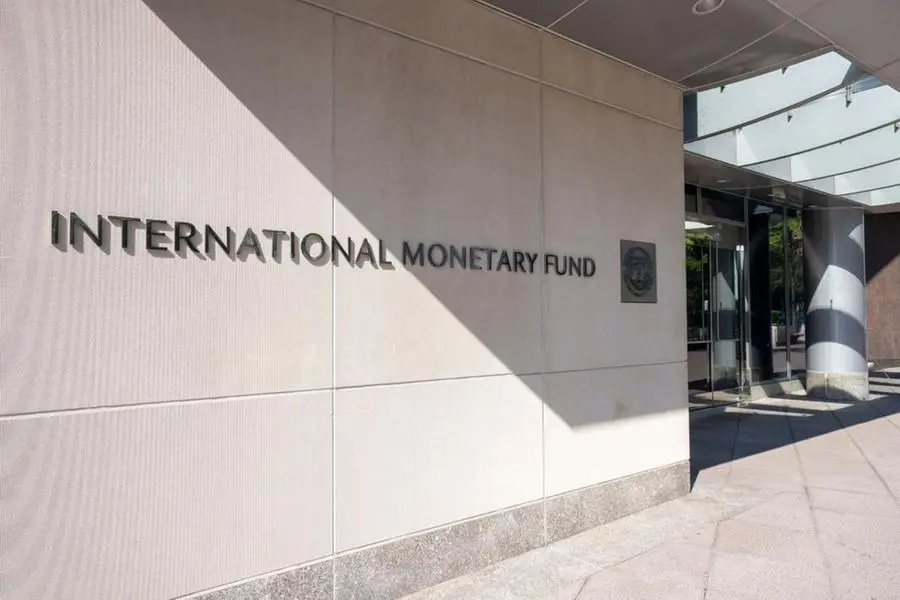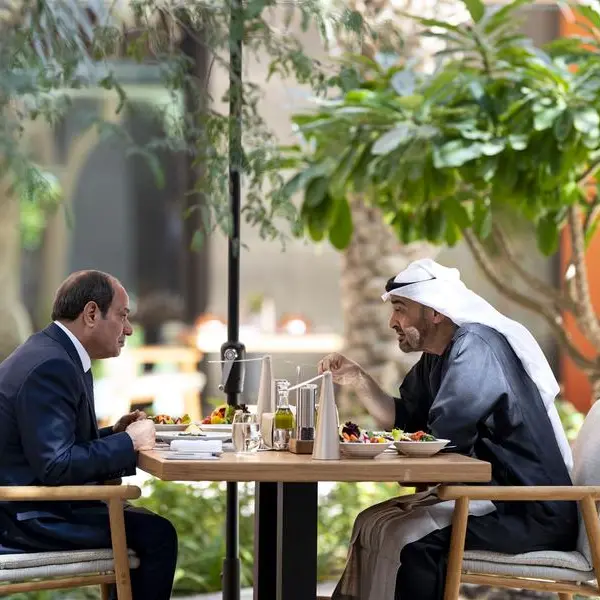PHOTO
The Ministry of Finance (MoF) announced that the UAE has signed two agreements with the International Monetary Fund (IMF) to contribute to the financing of the Poverty Reduction and Growth Trust (PRGT) and the Resilience and Sustainability Trust (RST). The signing took place on the sidelines of the annual meetings of the World Bank Group (WBG) and the IMF in Washington, D.C., where the UAE is participating until 26th October.
The UAE delegation, led by Mohamed Hadi Al Hussaini, Minister of State for Financial Affairs, includes top officials from the Central Bank of the UAE (CBUAE) and the Ministry of Finance, such as Ibrahim Al Zaabi, Assistant Governor of the Monetary Policy and Stability Department, CBUAE, and Ahmed Al Qamzi, Assistant Governor for Banking and Insurance Supervision, CBUAE. This is in addition to Ali Abdullah Sharafi, Acting Assistant Under-Secretary for International Financial Relations at the MoF, Hamad Essa Al Zaabi, Director of the Office of the Minister of State for Financial Affairs, and Thuraya Hamed Al Hashemi, Acting Director of Relations and International Financial Organisations at the MoF, as well as a number of specialists.
Al Hussaini stated, "Our participation in the annual meetings of the WBG and the IMF brought together global economic and financial leaders, offering a valuable platform for exchanging ideas and strategies to tackle pressing global economic challenges.
“We are pleased to announce the signing of two agreements with the IMF to support the RST and the PRGT. This move reaffirms the UAE’s commitment to supporting international efforts aimed at sustainable development, poverty eradication, and strengthening the resilience of developing economies in the face of global challenges, further solidifying our leading role in promoting global financial and economic stability," he added.
He continued, "Our support for these funds stems from a deep belief in the power of international collaboration to build a more sustainable and prosperous future, particularly for developing nations and emerging economies. Through this initiative, we aim to empower low- and middle-income countries to invest in green infrastructure and bolster their resilience to economic and climate-related challenges.”
“We firmly believe that financial and economic stability form the bedrock of sustainable development, and by supporting low-income countries, we are investing in the future of humanity. We are confident that this partnership with the IMF will play a vital role in advancing global sustainable development goals while reinforcing the UAE's position as a key partner in shaping the global economic landscape," Al Hussaini noted.
During the October 2023 meeting of the International Monetary and Financial Committee (IMFC) in Marrakech, Morocco, held as part of the IMF and WBG meetings, the UAE announced a significant initiative to co-finance the Poverty Reduction and Growth Trust (PRGT) with a contribution of US$200 million (AED735 million). This commitment is part of the UAE's efforts to expand concessional lending to low-income countries, supporting the first goal of the United Nations Sustainable Development Goals (SDGs), which focuses on eliminating poverty and other challenges that countries of the world must come together to face for a better and more sustainable future for all.
Additionally, at the COP28 conference hosted by the UAE from 30th November to 12th December, 2023, the UAE pledged another $200 million (AED735 million) to the IMF's RST. This funding is aimed at enhancing climate resilience and strengthening the preparedness of low-income countries to face the impacts of climate change.
Established in January 2010, the PRGT is a key instrument of the IMF designed to address the challenges faced by low-income countries. It provides concessional financing to countries grappling with high inflation, persistent food insecurity, rising debt risks, and high borrowing costs.
In response to these challenges, the IMF has expanded interest-free lending through the PRGT to assist the poorest and most vulnerable member countries in navigating this difficult economic environment. Currently, 69 countries are eligible for PRGT financing.
The IMF’s RSTF offers concessional financing with long-term maturities to support climate resilience and pandemic preparedness, particularly in middle- and low-income economies and countries most vulnerable to the impacts of climate change.





















